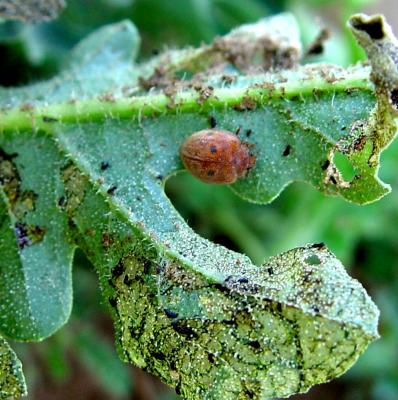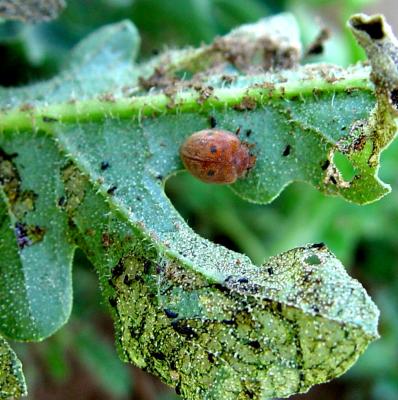

Epilachna beetle (Epilachna chrysomelina)
Adults of the Epilachna beetle, also known as the African melon ladybird are 6 to 8 mm long, reddish in colour with a number of black spots on the wing cases. The larvae are 7 to 9 mm in length, soft and covered with dark coloured spines. They pupate on leaves. Both adults and larvae feed on the leaves leaving a fine net of veins. Damaged leaves shrivel and dry up. They may also gnaw stems and eat holes in fruits.
These beetles are most likely to be a problem during establishment when plants are small; young plants can be entirely destroyed. Older plants can tolerate considerable leaf damage, but during flowering fruit set maybe affected. This beetle is a vector of squash mosaic virus. The Epilachna beetle attacks all cucurbits. They often fly into a crop from nearby crops.
- Do not grow pumpkins near crops attractive to the Epilachna beetles (e.g. other cucurbits, potatoes, maize)
- If necessary apply neem products. Simple neem-based pesticides are effective in controlling this pest. For instance, weekly foliar sprays of aqueous neem kernel extracts at concentrations of 25, 50 and 100 g/l and neem oil applied with an ultra-low-volume (ULV) sprayer at 10 and 20 l/ha significantly reduced feeding by Epilachna beetles in squash and cucumber in Togo (Ostermann and Dreyer, 1995)
